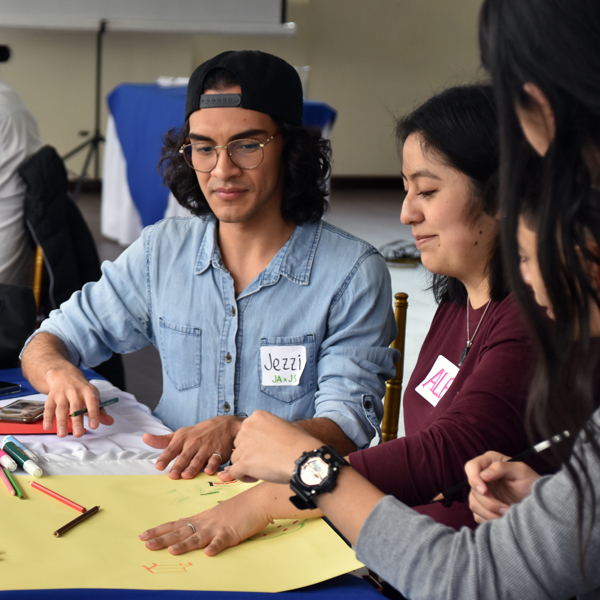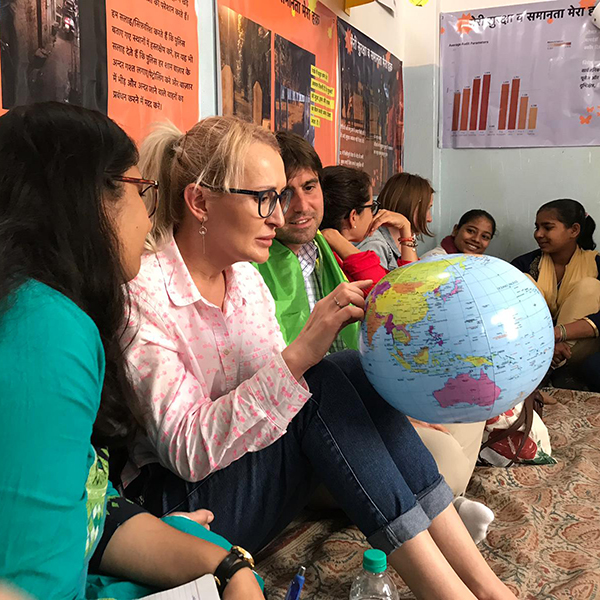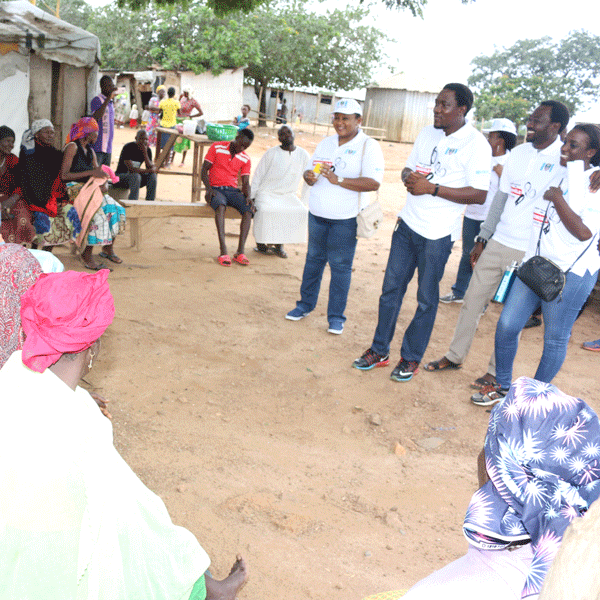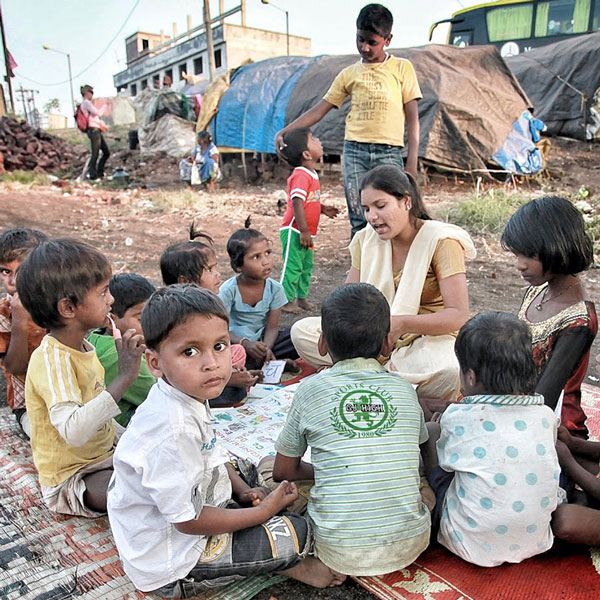GFC’s Corey Oser reflects on her experience when she accompanied the program staff of Avani, one of GFC’s partners in Kolhapur, India, for a conversation where community members shared what feels important about their community.
I settle cross-legged on the floor of a cheerful, pink-walled, government-funded early childhood center. I am accompanying program staff of Avani, one of GFC’s partners in Kolhapur, India, for a conversation where adolescents, older youth, and adults of a certain village are getting to know each other and sharing what feels important about their community. There is no fanfare about my presence; I am simply a visitor joining the conversation as we introduce ourselves and mention something we each appreciate about where we live.
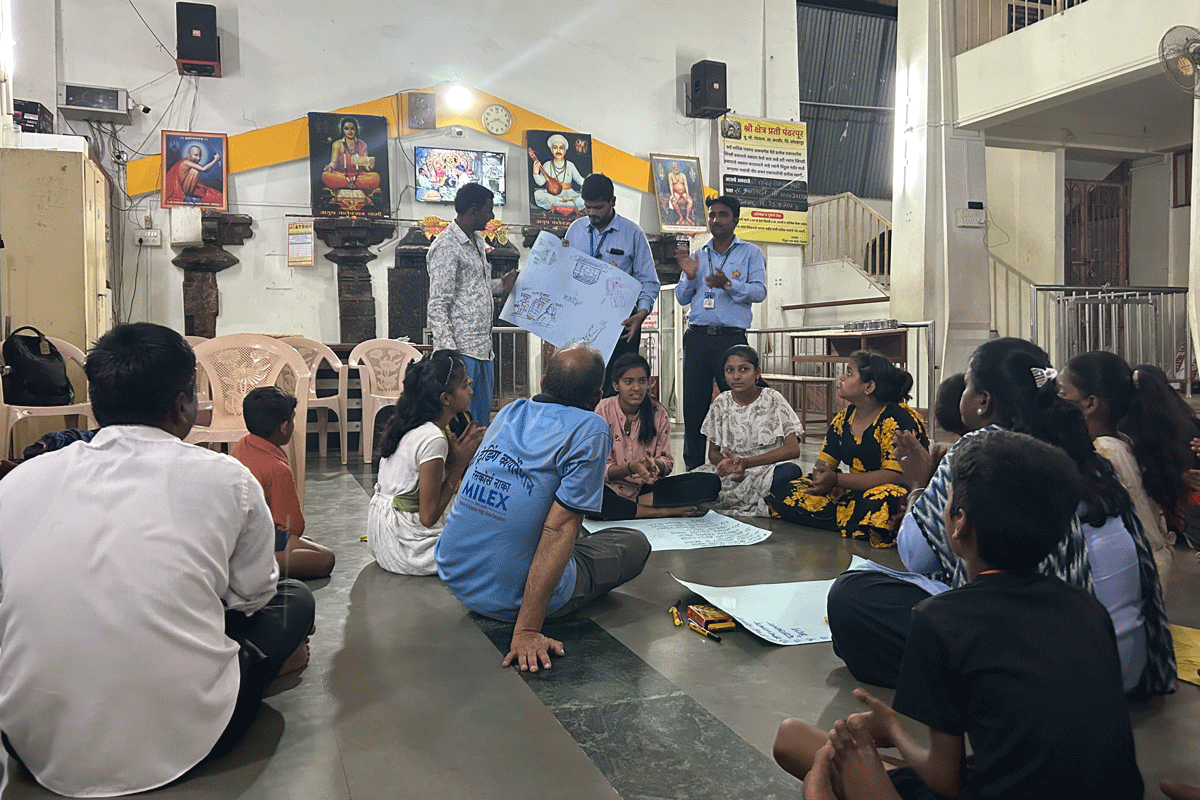
As a funder that has championed the role of community-based organizations since we were founded 30 years ago, contesting some prevailing notions in global development is in our bones. We acknowledge that the complex legacies of inequitable relationships with funders in certain regions can influence the dynamic between organizations and the communities they are embedded in. Staff at local organizations sometimes see problems in communities more acutely than strengths and feel a duty to teach, train, or find solutions and “deliver” them. This dynamic can be reinforced by funders that come to organizations with ideas already developed for implementation or insist on organizations designing outcomes to be achieved at the start of an “intervention” without meaningful participation of affected community members.
These legacies, particularly in West Africa and South Asia, have prompted us to invite interested partners to engage in reflective processes to question assumptions about what it means to be community led. In India, my colleague Rituu Nanda has been accompanying several of our partners through The Constellation’s Community Life Competence Process (CLCP), which is strengthening their confidence as facilitators of community dialogues to spur appreciation of individual strengths; promote dialogue among different groups in communities, such as adolescents and local leaders; and foster a sense of possibility that community members can make changes on their own terms.
In the process of addressing the root causes of restrictive gender norms, the Avani team recognized that rather than only working with young people, they needed to go deeper into community dialogues like the one we have joined. At the end of this meeting, a group of male students invites us to visit the small library they’ve set up a few blocks away in a space donated by a local cooperative. The students have collected books, organized desk space for quiet study, and developed a book borrowing system. When we ask where the women are, they explain that parents will allow girls and young women to check out books but not to study there. They are figuring out what to do so girls and their families will feel comfortable. No organization or donor is behind this effort – it is community-led change in action.
The next day, we are invited to join a “dream-building” session in which groups of boys, girls, and local elected leaders gather on a Friday evening in the open space near the entrance to a Hindu temple. Each group excitedly draws their dreams for the community and shares the drawing and its elements with the full group. The young people are thrilled; they have been trying to get local leaders to attend a meeting with them for nearly a year, but elections made this tricky. The young people also share a play they created earlier to call attention to the effects of harmful gender norms on the lives of people like them.
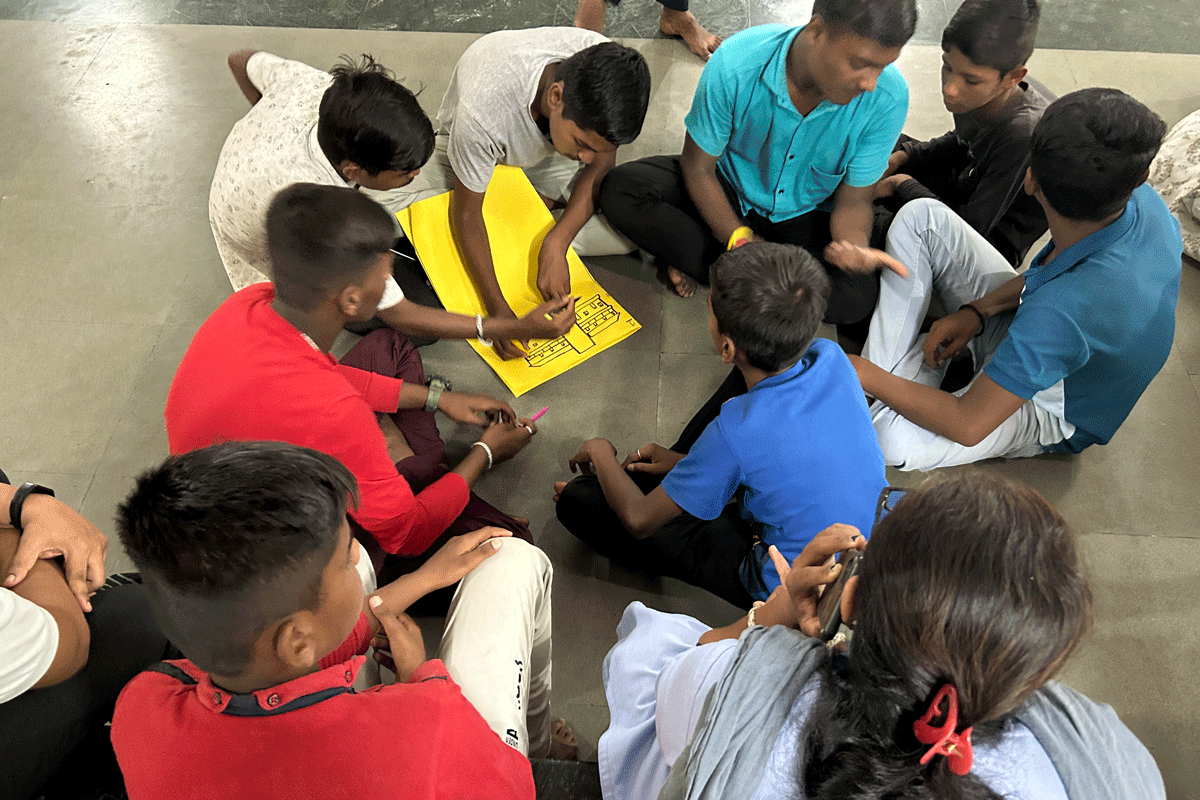
Earlier this year, I had a chance to accompany staff members from GFC’s partners in Côte d’Ivoire and Guinea to Promoting Community Wellbeing, a ten-day workshop held in Senegal by Tostan, an organization that has been working for 30 years to empower communities to bring about social change. This workshop shared the practice and principles of Tostan’s work to stimulate reflection on the role of community members in leading their own development and not as “beneficiaries” of projects.
The workshop started with Tostan’s entire training center team – from cooks to groundskeepers to facilitators – joyfully welcoming the group and introducing themselves, conveying the powerful message that everyone’s voice is important. This philosophy extends to the learnings Tostan shares about its experience listening to community members and fostering a “capacity to aspire” rather than coming to deliver training or “sensitize” based on what staff or donors think is important. Since this workshop, my colleagues in the region, Amé Atsu David and Ramanou Babaedjou, have been accompanying our partners to experiment with playing a more facilitative and less directive role in how they engage communities to drive change based on the communities’ own priorities.
I see common threads woven across the efforts to center communities in these two regions. Our partners in both regions acknowledge that they are working in ecosystems that are often not friendly to the patient, non-linear process of fostering community-led change. Short-term funding cycles – sometimes as short as six months – run counter to the time needed to build trust, listen, elicit dreams, and support plans of action. Requests for proposals that ask for specific indicators of change without space for community members to define that change are other barriers, and organizations often do not feel they are able to negotiate. Some partners shared stories of funders dictating specific activities, such as awareness campaigns, that organizations believe are superficial and do not address deeper social dynamics.
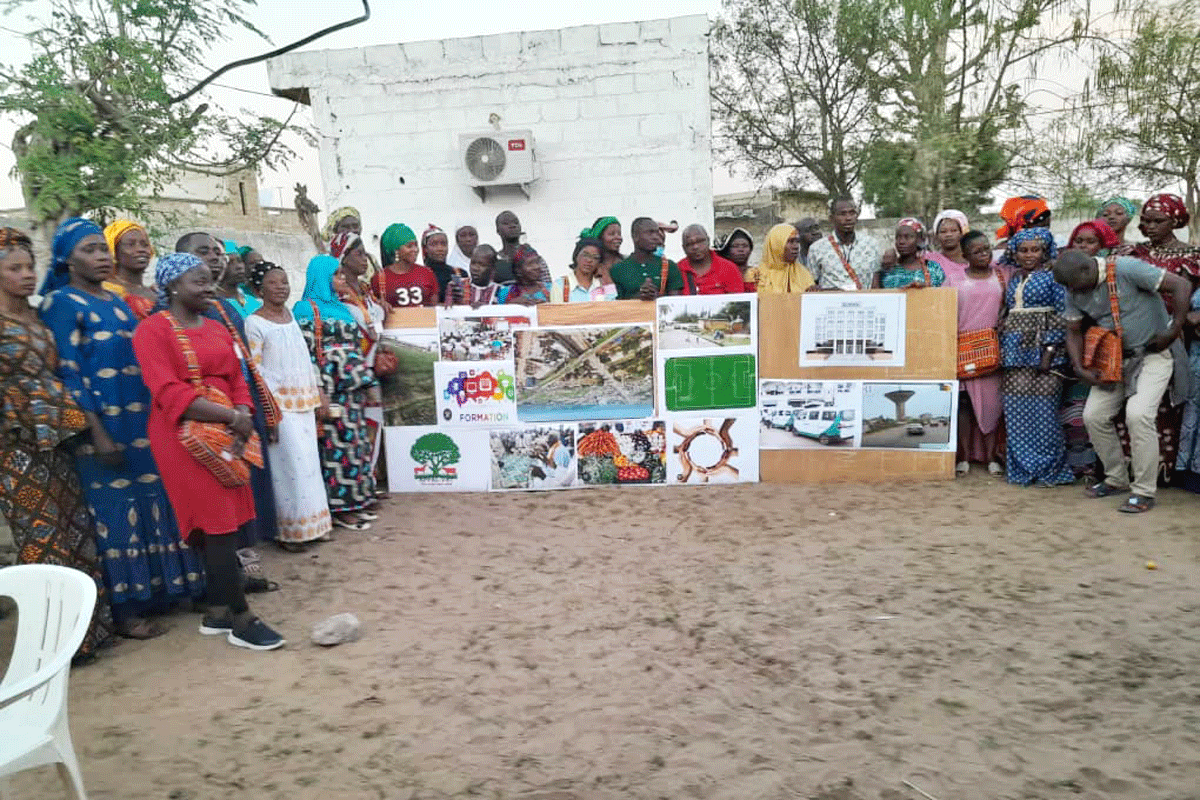
Spending time with community members in India and Senegal strengthened my conviction that we need to understand how our partners relate to the communities in which they work. With community-driven change as one of the guiding stars in GFC’s five-year vision, we can’t ignore how the colonial legacies in many regions affect how some of our partners interact with the people they work with.
Although we recognize that other funders that support our partners may operate with different constraints, we can work with our partners to better document the shifts that take place when they strengthen their facilitation skills to work with communities; when they truly listen; and when they approach issues such as gender equity in a holistic way.
“When our partners can make stronger cases for the transformations that happen in their own lives, in their organizations, and most importantly, in the communities they work with, they will have stronger tools to influence others to understand how centering communities is not a fuzzy concept but the key to sustainable change.” – Corey Oser, Vice President of Programs
Header Photo: GFC’s Côte d’Ivoire and Guinea partners interact with Demba Diawara, Imam and Chief of Simbara village, who helped to shape Tostan’s model.
